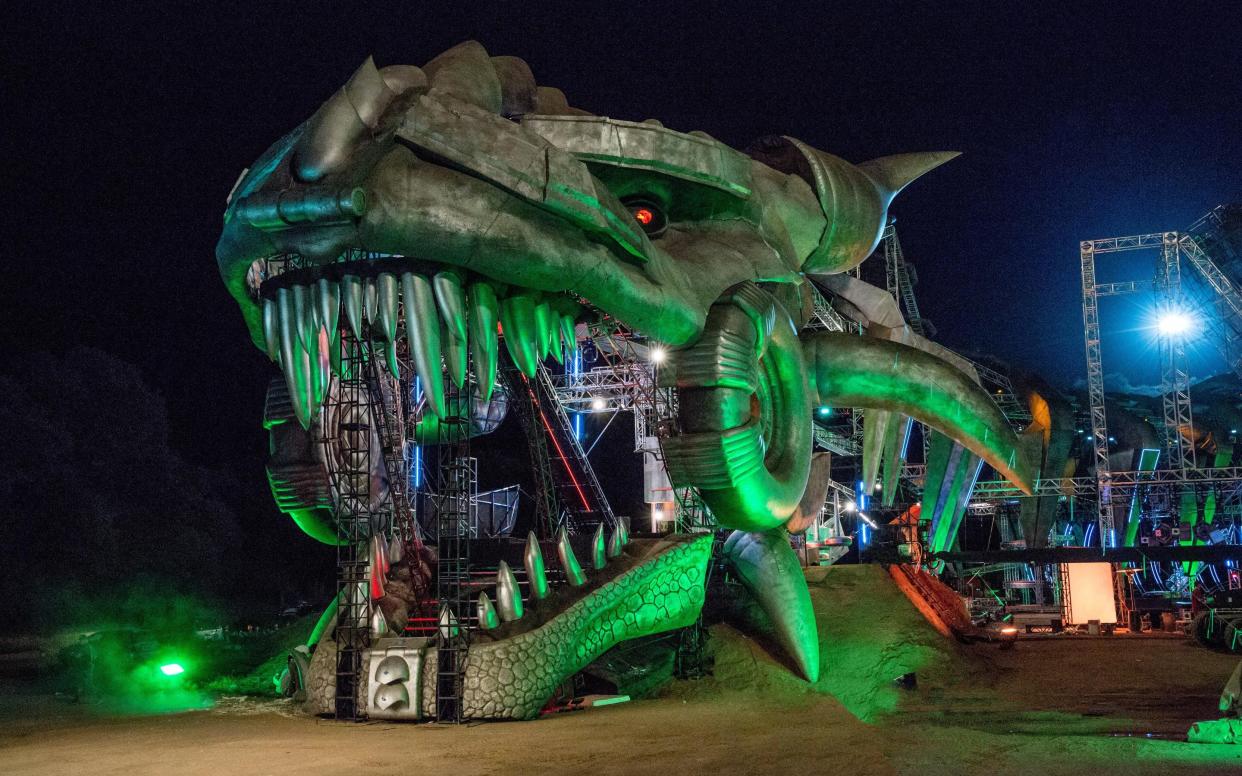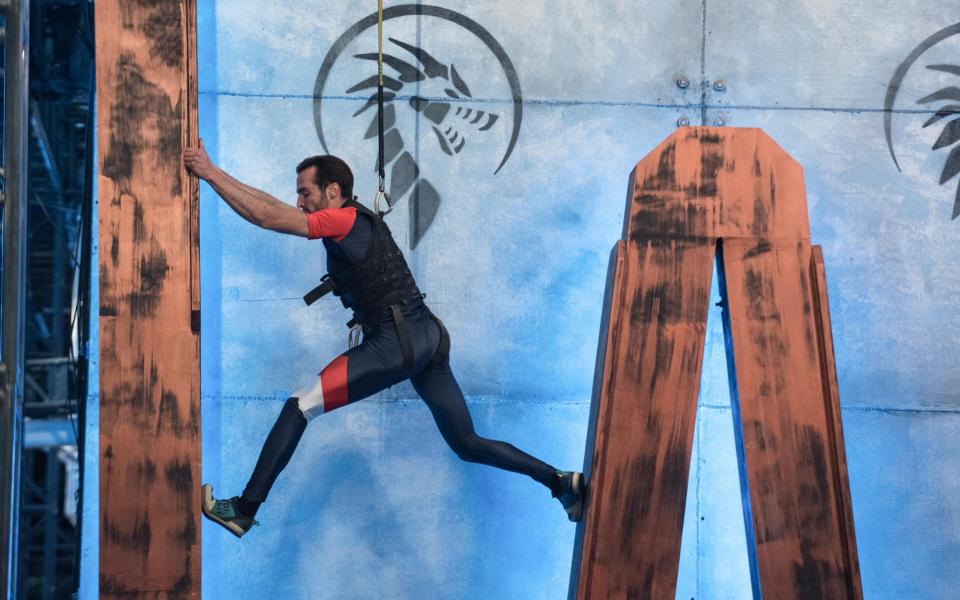Missing the Olympics? Watch Netflix’s Ultimate Beastmaster – it’s more fun

I love the Olympics. I have done since the year 2000 when, at eight years old, I rocked back and forth, quivering with adrenaline on the old green chair in my grandad’s Inverness home, watching the Sydney Games.
It was the events in the pool that initially captivated me. Ian Thorpe won his first three Olympic golds that summer, and I heard he ate eight Weetabix for breakfast, so I started doing the same. Misty Hyman picked up the name “Madame Butterfly” in her astonishing defeat of the reigning Olympic and world champion and world record holder, Australian Susie O’Neill, so during my swimming lessons at the local Aquadome I swam exclusively butterfly.
But there was more: Steve Redgrave took his fifth gold in the coxless four at 38 years old; Kelly Holmes won her first medal, a bronze in the 800m; the first ever Olympic triathlon took place. The sense of greatness and legacy took me for its own.
That continuity and history is both calming and powerful. With four years between each games, it’s all about growth. Sydney, for example, was Michael Phelps’s first Olympics. He was just 15 back then, but in the 16 years that followed, he would claim 23 gold medals and become the most decorated Olympian of all time. Holmes returned in 2004 to claim her legendary double gold in the 800 and 1500 metres. In London in 2012, Jessica Ennis-Hill claimed her heptathlon gold in front of a home crowd.
And in the same way that the Eurovision Song Contest delivers a deliciously saturated version of each country’s characteristics, the Olympics offers an amped-up snapshot of the world. Commentators animated; athletes in their national kit; spectators dressed up, singing, screaming and dancing.
Season three of Netflix’s show Ultimate Beastmaster has all of the above. Produced by Sylvester Stallone, over 100 competitors must tackle “the beast” – an insane, 600ft-high obstacle course that leaves Total Wipeout and Titan Games (The Rock’s show) looking boring. Succeeding in the course requires boundless functional fitness, strength endurance, bravery and tactics.
Athletes must qualify through three initial rounds, each with different obstacles, to reach the semi-final. Then it comes down to the final, where two athletes face-off in climbing the entire 600ft course for the title of the Ultimate Beastmaster.
In season three, nine countries, including Brazil, Great Britain, Germany, USA, Australia, Mexico, Italy, France and South Korea, go head to head in an attempt to conquer “The Beast”. A pair of commentators of each nationality, from the UK’s Stu Bennett and Kate Abdo to Australia’s Dannii Minogue and Nick Cummins (former rugby union player and The Bachelor star), gee up in booths. A mix of sportspeople, journalists, actors and TV personalities, each set of commentators speaks in his or her own language, meaning localised versions of the show are produced – just as with the Olympics.
The competitors are genuinely impressive, jumping, swinging and pulling themselves along each course with unbelievable strength – none of the nonsense and floppy uselessness that defines Netflix’s other hit, The Floor is Lava. And it’s not just brute strength either; each course takes several minutes to complete, requiring epic levels of endurance.
Here, there are world-champion climbers, parkour professionals and Olympians. Among the mix are the truly unafraid: the face-tattooed Scottish Thai boxer David Ferguson, who took a vow of silence in a Thai monastery after his mother committed suicide; Australian surfer Jayden Irving who, on a trip to Congo, was mistaken for being hired to assassinate the president and thrown behind bars for 25 days; James Drake, an American multiple-sclerosis sufferer. All three were some of the strongest in the show.

Between the competitors’ dabs and worms – sometimes I wonder if they know they’re being timed – the crowd leaps around, each nation dressed as an absolute stereotype. The Aussies carry baby koalas, the Mexicans wear sombreros, and the Brits have a Churchill dog. Faces are painted, and hair tied up with ribbons in the relevant national colour. When each country’s competitor succeeds by reaching the end of a level, there’s an enthusiastic pile-up that cares not for fears of injury.
And the slip-ups and injuries make the heart plummet. This course is tough. Each level is performed high up over water (aka “the blood of the beast”), but the velocity at which the athletes are moving with the added danger of the actual obstacles means mistakes happen. One of my favourite competitors dislocated his shoulder on the course, falling from height due to the excruciating detachment. He had it popped back in live on camera, and returned not just to attempt the next level, but to complete it with one of the highest scores. It was mind before matter, taken to Usain Bolt standards.
I have made peace with Tokyo 2020 being postponed. After all, this is not the first time I’ve missed an Olympics; during London 2012, I was stuck working on a French oyster farm with no internet and a lot of grumpy sailors. (But that’s a different story.) What I have found, however, is the perfect distraction. A thing that combines pride in one’s country with athletic skill – and the chance to win or lose.

